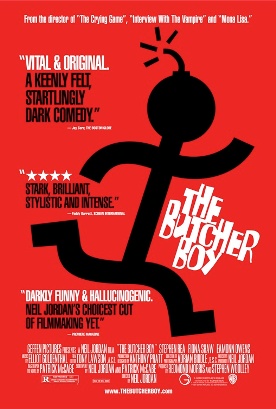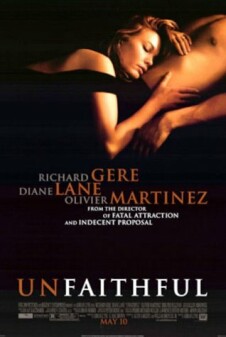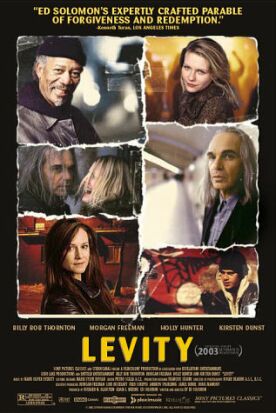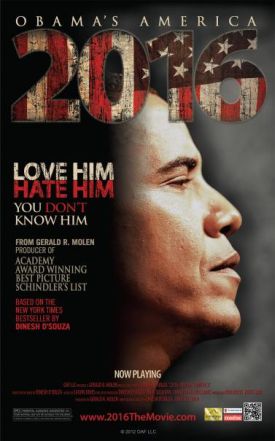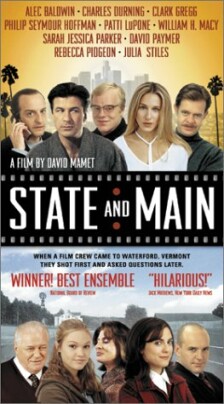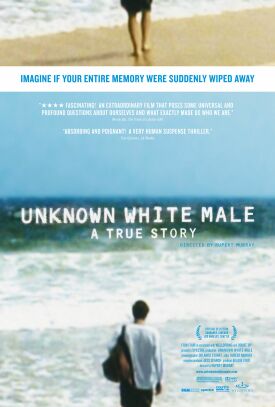Butcher Boy, The
When J.M. Synge’s Playboy of the Western World had its premiere in Dublin in 1907 there were riots in the streets because the play was thought to be a vicious slander on the Irish people. Synge had seemed to suggest that it was characteristic of the Irish blarney, at least among the rural folk that he presents in his play, to lionize a man because he claims to have murdered his father. Fast forward now 90 years to Neil Jordan’s The Butcher’s Boy which presents a Synge-like vision, without the humor or the irony, about a holy terror of a child who eventually kills and butchers a neighbor woman because she once scolded him. But now instead of riots, Jordan seems to have provoked only applause from the fashionable, in Ireland as elsewhere, and (it is to be hoped) indifference from everyone else.
This is because the film is appropriately (to modern and showbiz prejudices) dismissive towards the church (Sinead O’Connor appears as the Blessed Virgin in a series of visions) and the old Ireland that was already dying out in the early 1960s when it is set. In fact, the film could be seen as a celebration of the final defeat of that embattled bourgeois morality that protested at Playboy. Now we’ve seen that lot off, Jordan suggests, we are all in the position of those simple villagers who admired Christy Mahon for killing his father. The pop culture has long been used to the idea of the good bad boy, and so, where Synge was ridiculing both Christy and the villagers who admired him, Jordan is joining in their celebration of criminal anarchy.
Eamonn Owens stars as the main character, Francie Brady, a poor boy whose father is a drunken trumpeter, Benny Brady (Stephen Rea) and his mother an unbalanced woman. Benny beats her and, as the landlady at the seaside hotel says when she spoils Francie’s last illusion about his parents’ early married life, treats her like a pig. And the pig motif is strong throughout the picture. The neighbor, Mrs Nugent (Fiona Shaw) describes Francie’s father and latterly Francie himself as a pig (both of them give ample justification for the description), and this seems to be Francie’s original motivation for his long-delayed revenge against her.
Francie’s best friend and blood brother is Joe Purcell. They play at wild Indians together and join in the persecution of Mrs Nugent’s prissy son, Philip. When Francie’s pranks against Philip and Mrs Nugent become really disturbing, he is sent to a religious reform school whose founder is said to have believed that “no boy is so bad that you can’t find a scrap of good in him.” Francie is there to prove the old priest wrong. He asks to become an altar boy and pretends to see a vision of the Virgin. We are invited to laugh at the credulous fools of priests who celebrate him for it and speak reverently of how God seems to have “unlocked something precious in you.” Worse than that, Milo O’Shea plays a pathetic, pedophiliac priest who dresses Francie up in his mother’s bonnet and feeds him chocolates.
Francie escapes from the priests and makes his way to the boarding school where Joe has been sent. There Joe denies being his friend, and Francie is summarily ejected. Francie speculates that it was not the real Joe, but that aliens, communists or Nugents must have replaced him with a fake. He also says that aliens have taken over the body of Mrs Nugent before he takes his sick revenge against her. This results in his being sent to “the garage for bad bastards” (his mother having once had a “breakdown” in his youth, she is said to have been sent to the garage for repair) where he is forced to make “a million billion baskets” until he is eventually released as a middle aged adult (Stephen Rea again), having won, he says, the “Not-a-Bad-Bastard Anymore Award at last.” His supervisor at the home escorts him out into the road: “The real world, Francie; it’s time you joined it.” Time Neil Jordan did too.
Discover more from James Bowman
Subscribe to get the latest posts to your email.

